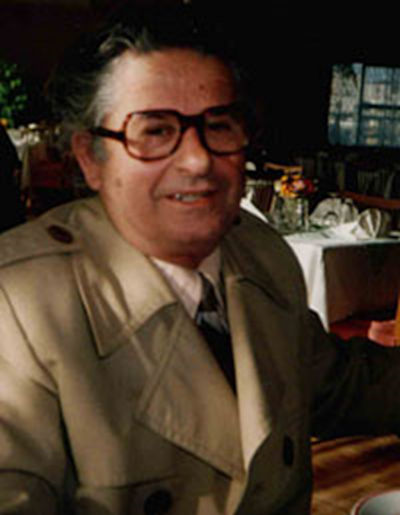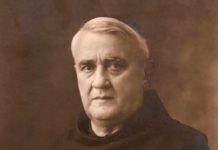Robert Elsie
Albanian Literature
Albanian Authors
Faslli HALITI
Faslli Haliti was born in Lushnja in 1935 and worked as a teacher of art and literature there. His first poetry collection, Sot (Today), Tirana 1969, was a great success and was awarded a national prize. Soon thereafter, during the Cultural Revolution, ideological errors were “discovered” in his literary works. He was then denied the right to publish for ten years (1973-1983) and was dispatched to the countryside to work in an agricultural co-operative. Haliti is still a much honoured poet in Lushnja, and has been the recipient of numerous awards.
THE MAN WITH THE PISTOL
He waits for the autumn wind to blow,
Not for the trees to lose their leaves,
Not for the withered scraps to scatter,
But for the flaps of his jacket to lift,
For the pistol in his belt to be seen.
He waits for the spring season,
Not to sow, then to reap,
But to shed his jacket,
For the pistol in his belt
To be seen.
[“Njeriu me kobure”, first printed in the periodical Nëntori, 1972, and republished in the collection Kujt t’i besoj (Tirana: Toena 2006), p. 54. Translated from the Albanian by Robert Elsie. This poem was called subversive and revisionist at the Fourth Plenary Session of the Albanian Communist Party in 1973. For it, Haliti was banned from publishing and sent to work in the countryside.]
BUREAUCRACY AND I
I am Count Ugolini,
Bureaucracy, that’s Ruggero.
Ugolini and I,
Bureaucracy gnaws at Ruggero’s head
And I have no fatigue,
No mercy,
Only satisfaction,
That’s exactly
What I feel.
Petraq
(my boss on the committee)
Like Ruggero
Keeps my seven years of studies
Locked in the cell that’s his drawer.
Famished the years of my studies,
Like the sons of Ugolini longing for food,
They wait for a scrap of learning,
Rations from a tasty book.
I am studying once again
(by correspondence of course),
Such is life.
I do my lessons
And then go and fetch milk for my daughter,
I rock my little son whenever he cries.
I go to work,
And come back home from work,
I stroke the pages of my books first,
And then stroke the cheeks of my children,
And then go for a walk out to shop with my wife.
This is the only way I have
Of getting back at you, bureaucracy.
[“Unë dhe burokracia”, printed in the periodical Nëntori, 1970, and republished in the collection Kujt t’i besoj (Tirana: Toena 2006), p. 56. Translated from the Albanian by Robert Elsie.]
SHE
Her eyes met my glance,
Like two icebergs we collided,
And shattered.
Indignant, she cried out:
“I’m a town girl!
You’re just a peasant!
I could never marry you!”
“I know exactly what you mean,
You’re like a block of ice in the springtime,
And, no doubt about it,
You shall melt!”
[“Ajo”, from the volume Sot (Tirana: Naim Frashëri 1969), republished in the collection Kujt t’i besoj (Tirana: Toena 2006), p. 13. Translated from the Albanian by Robert Elsie.]
NOISE
Down the road before me
Roared a motorbike, ear-splitting,
And vanished among the trucks in the dusk,
Leaving behind it
A few blatant bursts from an exhaust pipe
And the din of propulsion.
I marked
And mumbled:
Little things, big noise!
[“Zhurmë”, from the volume Sot (Tirana: Naim Frashëri 1969), republished in the collection Kujt t’i besoj (Tirana: Toena 2006), p. 23. Translated from the Albanian by Robert Elsie.]
THE POND
Why so murky, pond?
I conceal my depth,
To seem profound!
[“Pellgu”, from the volume Mesazhe fushe (Tirana: Naim Frashëri 1984), republished in the collection Kujt t’i besoj (Tirana: Toena 2006), p. 32. Translated from the Albanian by Robert Elsie.]
THE BLACK BROOK
Near the Black Brook,
In my white meadows,
The shepherd Duro made love,
Lay
With a widow,
While his sheep were grazing.
In the fields, in the meadows,
The shepherd Duro
Made a ruckus
With the widow, sex
In the wheat fields, in the corn rows,
In amongst the aspens at the black brook…
And the waters bubbled and brightened with his passion…
My white meadows near the Black Brook.
[“Përroi i Zi”, 2004, published in the collection “Kujt t’i besoj” (Tirana: Toena 2006), p. 214. Translated from the Albanian by Robert Elsie.]












